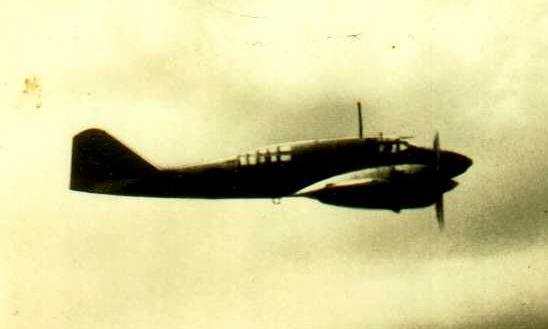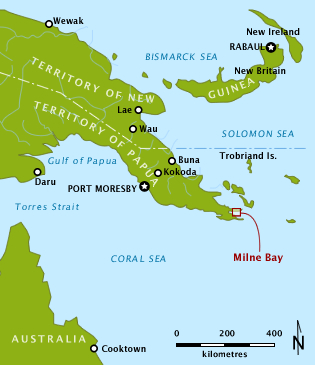
This is another thread on Imperial Japanese radar countermeasures in WW2.
This thread will also include the US inter-service intelligence/classification/budget wars between the Joint Chiefs & MacArthur's Section 22 radar hunters.
1/
This thread will also include the US inter-service intelligence/classification/budget wars between the Joint Chiefs & MacArthur's Section 22 radar hunters.
1/

The information in this thread is coming from a 28 May 1945 training document from Boca Raton Army Air Field.
William Cahill of the Sec 22 Special Interest Group found it in Late Feb 2021. 2/

William Cahill of the Sec 22 Special Interest Group found it in Late Feb 2021. 2/


What Cahill found in RCM Digest 14 was yet another bit of Japanese radar countermeasures.
One utterly unique in the history of electronic warfare. 3/
One utterly unique in the history of electronic warfare. 3/
It was an air dropped radar dipole reflector that was neither window, nor rope.
It was a wire corner reflector assembly. It had a parachute to slow and stabilize the assembly while a hydrogen gas generator filled a balloon that would keep the decoy airborne for a 1/4 hour(+) 4/
It was a wire corner reflector assembly. It had a parachute to slow and stabilize the assembly while a hydrogen gas generator filled a balloon that would keep the decoy airborne for a 1/4 hour(+) 4/

I mentioned the Japanese use of balloon born dipole reflectors in Section 22 Week. This wasn't that. (See photo)
It was aircraft dropped to inflate & was not released from the ground.
The Kriegsmarine, USN & Royal Navy had nothing like it. 5/
It was aircraft dropped to inflate & was not released from the ground.
The Kriegsmarine, USN & Royal Navy had nothing like it. 5/

The US Navy's "NAVTECHJAP" investigative mission said nothing about it after the WW2.
This willful exclusion of Japanese RCM technology was par for the WW2 US Navy's course under COMINCH Adm. King. 6/
This willful exclusion of Japanese RCM technology was par for the WW2 US Navy's course under COMINCH Adm. King. 6/

What stood out about this bit of RCM kit was there is no record of its existence in Section 22 records.
The US Navy held back information on IJN doxing Allied IFF signals starting in March 1944 to Sept 1944 & on IJN airborne radar after Iwo Jima to the end of WW2. 7/
The US Navy held back information on IJN doxing Allied IFF signals starting in March 1944 to Sept 1944 & on IJN airborne radar after Iwo Jima to the end of WW2. 7/
In fact, the USN was holding out on itself on Japanese RCM tactics in WW2. See pg 248 of 328, paragraph 35, in the attached document "Report on the Capture of the Marianas" below.
Enemy RCM tactics were a step below sigint, but above that ships crews were authorized to know. 8/
Enemy RCM tactics were a step below sigint, but above that ships crews were authorized to know. 8/

This lack of intelligence information made things rather difficult for US Navy and USMC radar operators.
9/
9/
The 1st use I can find of this IJN para-balloon corner reflector was in a "Great Marianas Turkey Shoot" AAR.
It was not recognized for what it was because the balloon failed to inflate and the device fell into the ocean.
10/
It was not recognized for what it was because the balloon failed to inflate and the device fell into the ocean.
10/
It was used extensively by the IJN in the Okinawa campaign and was seen by picket destroyers, who termed them "kites" because of their duration.
The CVE's South East of Okinawa reported their use on 12 April 1945.
11/
The CVE's South East of Okinawa reported their use on 12 April 1945.
11/

What is shocking here is that the Boca Raton Radar & RCM facility of the USAAF was not telling Sec. 22, which was supporting the Fighter Commands of 5th & 13th Air Forces, about this Japanese radar decoy.
This was a massive change in the relationship between Sec. 22 & Boca Raton
This was a massive change in the relationship between Sec. 22 & Boca Raton
A direction to Boca Raton to not support US Army Air Forces in combat could only have come from USAAF Headquarters in Washington D.C.
The post-war internal budget wars came early for the USAAF Bomber Mafia.
General Kenny would not be allowed to be CoS USAF...at any cost.
/End
The post-war internal budget wars came early for the USAAF Bomber Mafia.
General Kenny would not be allowed to be CoS USAF...at any cost.
/End
@threadreaderapp unroll
• • •
Missing some Tweet in this thread? You can try to
force a refresh









